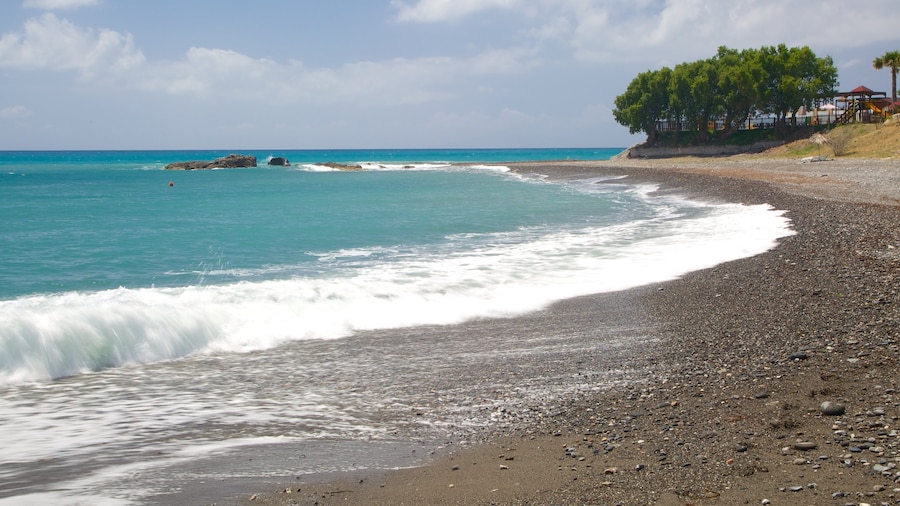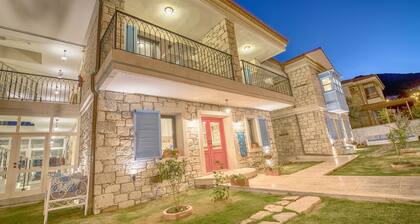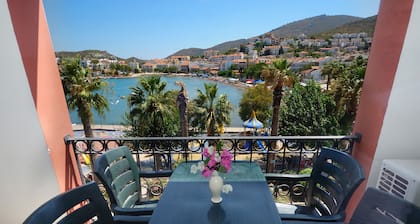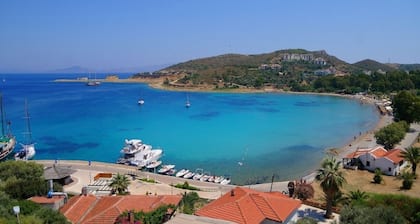Stroll among ancient Greek ruins in the Hellenic civilization of Knidos on the west tip of the Datça Peninsula. In ancient times, Knidos was a city with a great reputation for arts, architecture and science. Awe-inspiring archaeological relics are now scattered throughout this magnificent historical area. Explore the scenic Datça Peninsula coastline and look out to the ocean, where the Mediterranean meets the Aegean.
Explore Knidos on foot and find hints of the millennia-old Greek Dorian-Hexapolis city. The city was built on the two harbors between Cape Krio and the former Island of Triopon, now joined together by a sandy, narrow strip of land. Its residents, called Carians, were famous for their winemaking skills and large festivals in honour of the Greek gods. See the city’s breathtaking Roman theatre near the port and look up to the acropolis.
Wander past ruined temples and streets to the Temple of Aphrodite, which overlooks both ports. This wide, circular temple once housed a statue of Aphrodite, which was thought to be the first nude statue created. The area became a destination for one of the earliest instances of tourism. People would flock to Knidos to see the famous nude goddess. Today, only the statue’s plinth remains.
Knidos was home to many pioneers in arts and science, including Sostratus, who designed the lighthouse of Alexandria, and Eudoxus, one of the developers of the sundial. Eudoxus’ sundial still remains in Knidos.
Reach Knidos by boat or via the road leading to Knidos through the heart of the peninsula. Rent a motorized scooter to take the narrow and winding road through lush almond groves. Join a tour or rent your own yacht from Datça, 21.6 miles (34.8 kilometres) east. Purchase admission to the ancient city from the on-site office.
Experience this beautiful archaeological site on foot. The area was only uncovered in the mid-19th century. Bring your swimming gear and take in magnificent views of the coast and huge sun-bleached stones from the warm Aegean waters.








